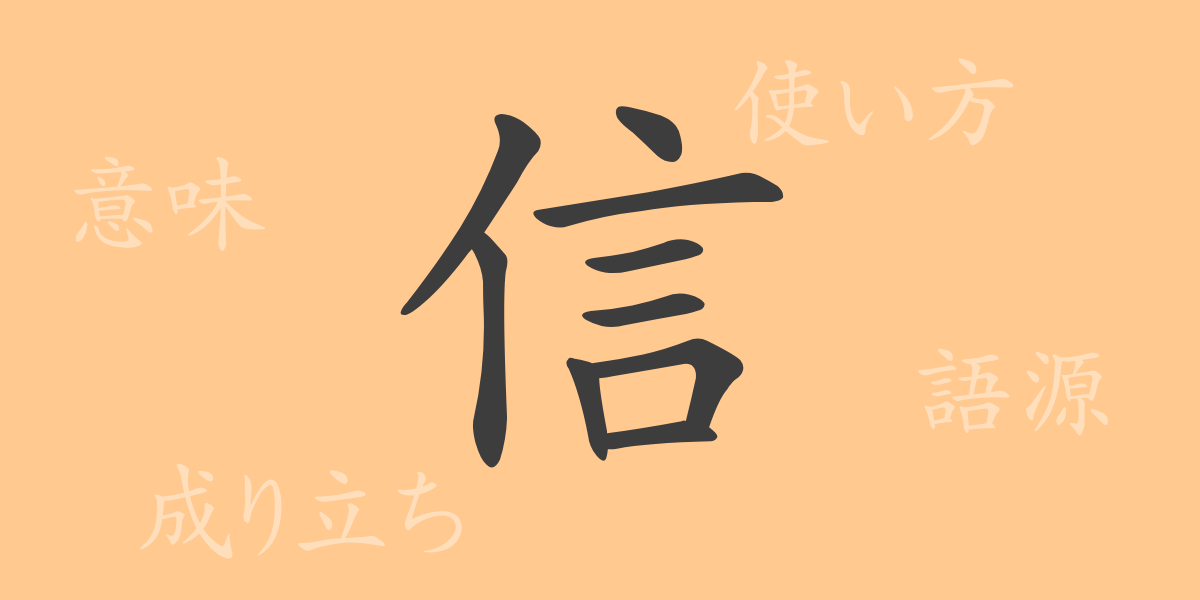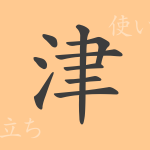The depth of Japanese culture and language often carries profound meanings, and the Kanji ‘信’ (しん) is no exception. ‘信’ connects hearts and symbolizes trust and integrity within society. This article delves into the origins of ‘信’, exploring its allure from historical beginnings to modern-day applications.
Origins of 信 (しん)
The Kanji ‘信’ originates from ancient China. Tracing its roots, ‘信’ was created to symbolize a person keeping their word, combining elements of ‘human’ and ‘speech’. This reflects the belief that maintaining one’s word is fundamental to building trustworthiness as a person.
Meaning and Usage of 信
‘信’ embodies meanings such as ‘to believe’, ‘trust’, and ‘integrity’. It is used to describe accepting someone’s words or actions without doubt or demonstrating sincerity towards others. In social life, building trust is crucial, and ‘信’ forms the foundation of this concept.
Readings, Stroke Count, and Radical of 信
The Kanji ‘信’ is distinguished by its simple yet powerful form.
- Readings: On’yomi is ‘シン’, Kun’yomi is ‘まこと’.
- Stroke Count: Total of 9 strokes.
- Radical: Human (ひと・にんべん).
Phrases, Idioms, and Proverbs Involving 信
There are numerous phrases, idioms, and proverbs that include ‘信’, which are frequently used in the daily life of Japanese people. For example, ‘信頼’ (trust) means to believe in someone without doubt, ‘信念’ (conviction) refers to adhering firmly to one’s beliefs, and ‘信条’ (creed) signifies the teachings or principles one holds true. The proverb ‘信じる者は救われる’ highlights the importance of having faith.
Conclusion on 信
The Kanji ‘信’ symbolizes trust and sincerity, foundational elements in human relationships. As an indispensable component in social life, it serves as a testament to promises and trustworthiness, continually employed in various contexts today. This character encapsulates vital values that one should uphold as a person.

























